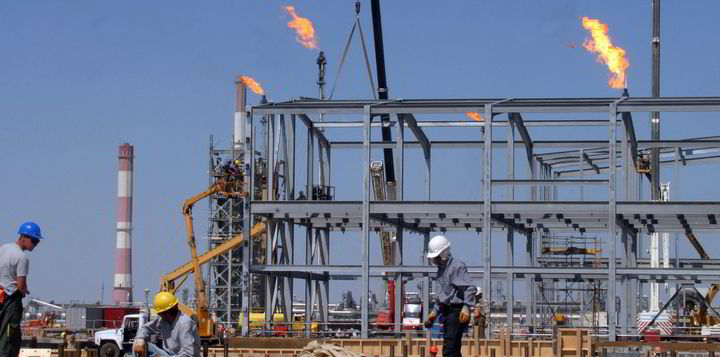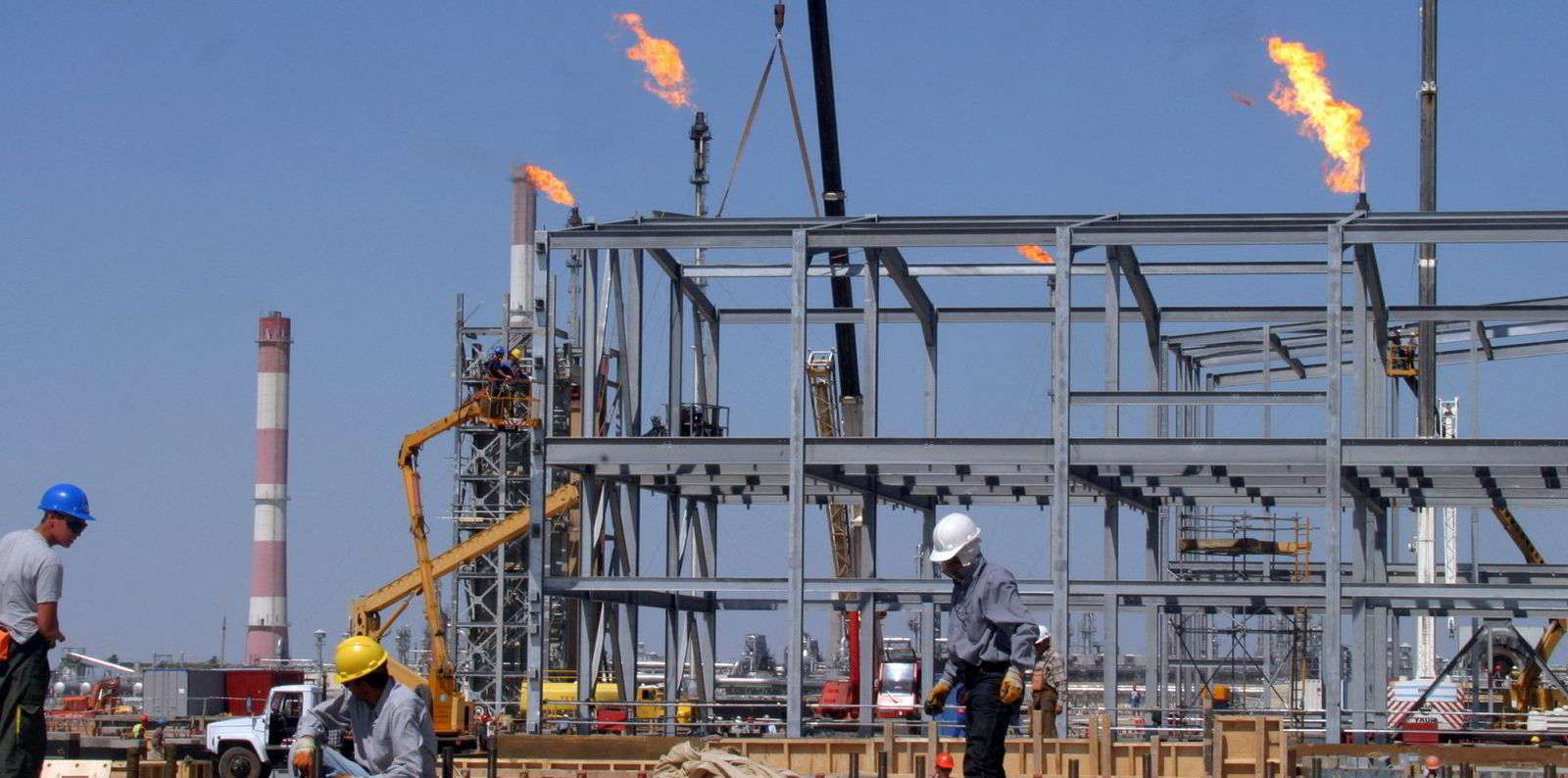A second major Kazakhstan oil shipment has been sent across the Caspian Sea to Azerbaijan as Kazakh oil producers respond to government calls toconsider alternative export routes to avoid transiting Russia.
Currently, more than 70% of Kazakh oil exports are sent via the Caspian Pipeline, which carries output from the country’s three giant foreign-led Kazakh oil developments — Tengiz, Kashagan and Karachaganak — to a marine loading terminal at Novorossiysk on Russia’s Black Sea coast.
Kazakhstan state-controlled oil pipeline operator KazTransOil revealed that it arranged the shipment of about 75,000 barrels of oil from the Tengiz oilfield —operated by US giant Chevron — via the Kazakh port of Aktau to a receiving terminal near the Azeri capital of Baku.
The shipment was transported by Azeri-owned tanker Heydar Aliev in Aktau, KazTransOil said.
It was unloaded near Baku, then taken to the Baku-Tbilisi-Ceyhan pipeline and sent to a key oil export terminal in Ceyhan on Turkey’s Mediterranean coast.
KazTransOil said it plans to send another similar-sized shipment of Tengiz oil to Baku before end of this week, and has preliminary plans to send a further 950,000 barrels of oil in April.
Article continues below the advert
KazTransOil did not reveal the name of the company responsible for the shipments, but market reports suggest it is Kazakh state-controlled oil and gas player KazMunayGaz, which is also KazTransOil’s parent company.
KazMunayGaz holds a 20% stake in the Tengiz development, the largest oil producer in Kazakhstan.
Earlier this month, a trial shipment of 52,000 barrels of oil was sent to Baku from the Kashagan offshore oil development for the first time since 2015.
In the past seven years, the Tengiz, Kashagan and Karachaganak operators abandoned the Aktau-Baku option and instead exported their output via the Caspian Pipeline.
However, top Kazakh government officials last year called on the country’s oil producers to urgently consider alternative export routes after Russia and its corporations were hit by international sanctions, imposed after Russia’s invasion of Ukraine.
Despite public pressure on the government to severe ties with Russia, Kazakh President Kassym-Jomart Tokayev has maintained a neutral stance on the conflict in Ukraine, insisting that Russia remains an important partner and ally.
Kazakhstan has also agreed to allow shipments of Russian crude to transit the country en route to Uzbekistan, as Russia seeks alternative options for sending volumes to countries not participating in the oil price caps imposed on Russian crude by the G7 group of leading economies.
Around 183,000 barrels of Russian crude are to be sent from the Russian-Kazakh border across northern Kazakhstan to Uzbekistan, KazTransOil said, with total transit shipments of Russian oil to Uzbekistan anticipated to exceed 1.8 million barrels before the end of this year.
Uzbekistan’s deliveries of Russian oil have come despite growing domestic oil production in Uzbekistan, which earlier bankrolled a multibillion-dollar gas-to-liquids facility to help reduce its dependence on imports of foreign oil and oil products.
Uzbek authorities are also considering Russian proposals to reverse a legacy gas pipeline in Kazakhstan to allow Russian gas giant Gazprom to start exporting natural gas to Uzbekistan.
Each year, about 73 million barrels of Russian crude already transits Kazakhstan en route to China under a long-term agreement between the countries.

